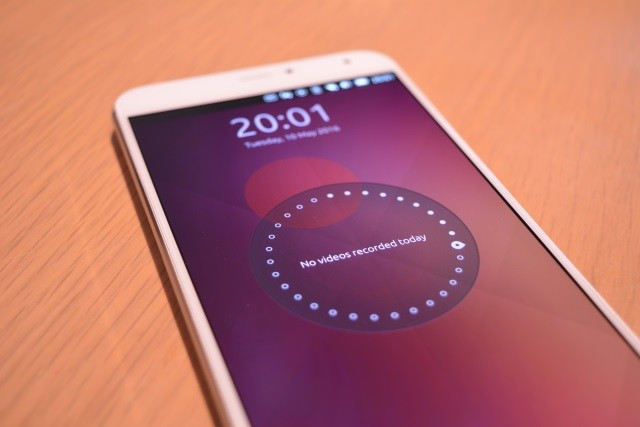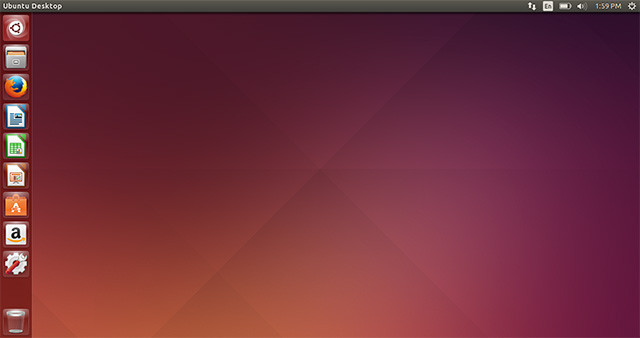10 things to keep in mind when switching to Linux mobile operating system
Because it is an important component of the Android operating system (OS), Linux is still very important to the mobile world.However, while Android uses the Linux kernel, it is just a Linux distribution, butLinux for mobile devices offers a completely different experience.Find out why using a Linux mobile phone is a great option, as well as a downside when switching from your favorite mobile operating system to this operating system.
7 reasons you should consider using Linux operating system for mobile devices
Linux for mobile devices including Android uses Linux kernel to Ubuntu Touch and Sailfish OS.There are many reasons to try a mobile version of Linux.
1. Security

Not surprisingly, Linux for mobile phones is proud of its privacy.This is a major drawback of Android and iOS.Like other desktop counterparts, Linux gives mobile versions a security priority.Sailfish OS, a Finnish open Linux platform based on Nokia's Meego Linux, features end-to-end encryption and MDM (Mobile Device Management).In addition, it also has optional algorithm support.Due to its strong security against malware, the Linux operating system has surpassed Windows.Mobile phone security is one of the main reasons you should try Ubuntu Touch.Although Canonical has abandoned the Ubuntu Touch project as well as Unity, the project continues to be developed byUBport.
- Do you know the safest operating system yet?
2. Upgrade the operating system

With Android operating system, operating system updates are quite sporadic.The upgrade depends on the device as well as the service provider.While a vendor's phone can receive newer Android version updates than the same device on another vendor.
However, with Linux on mobile phones, you benefit from continuous updates.For example, Plasma Mobile provides users with continuous updates.Of course, if a project is canceled it means there are no additional updates.But on Android when releasing new updates, most older devices will not have access to that update.
3. Compatibility with Linux desktops

Admittedly, Android and iOS are proud to have a large and well-established application catalog.However, Linux mobile phones offer application compatibility with desktop computers.So if you like using OpenOffice, LibreOffice and Rhythmbox run on Linux devices, then you can use it on the touch interface.
Ubuntu Touch has the ability to connect a keyboard, mouse and run a Linux operating system on a mobile device as a desktop distribution.This principle is to experience a user across the entire array of devices, from desktops and laptops to tablets and phones.To achieve this, Canonical has created a response through various media.This trend appears on Android with devices that support MHL and more specifically with Samsung Galaxy S8 that comes with DeX desktop environment.
4. Experience the "complete" operating system
Among the many reasons users prefer Linux over other operating systems is its pure experience.Android fans often experience the original Android (vanilla Android) as in Google Pixel phones.On Linux mobile platforms you will not see many bloatware.It makes the operating system run faster and more importantly creates an open environment.
5. Provide many customizations
Linux is customizable with everything from operating systems to module installation.Plasma Mobile, a Linux-based operating system for touchscreen devices, runs on Kubuntu and is compatible with Google Nexus 5. It is capable of running both applications for Ubuntu phones and Android applications.That kind of open and flexible environment makes Linux a great choice.
6. Dual boot
Thinking about trying Linux on your mobile device?You do not have to choose between Linux and Android.Although you still know you can dual-boot on a desktop or laptop computer, you may not know that you can dual-boot on a mobile device.This means you don't have to choose between Android and Linux mobile phones.Instead, run both operating systems in parallel.If your device supports multiple operating systems, you will encounter a custom ROM.Accordingly, your phone will have its additional flexibility.
7. Experience using your phone with fast speed
Linux distributions use less system resources and this is also true for mobile devices.While Android or iPhone may become slow, that doesn't happen when using a Linux distribution on a mobile device.Linux on mobile phones provides faster feedback.
3 potential disadvantages of Linux mobile phones

1. Too few applications
Not necessarily a lack of applications, but a lack of applications you already know.At this time, most mobile device developers are focusing on Android or iOS.Even the leaders of Windows cannot penetrate the mobile space with their Windows Phone.Unfortunately, Linux is left behind in the mobile world, at least from a user's perspective.You won't find many familiar apps like Netflix for Android mobile phones.
Plasma Mobile can run Sailfish OS, GTK and Ubuntu Touch applications in addition to Android applications.Tizen also includes compatibility with Android applications.However, compatibility is not perfect, although application compatibility is also different between Android operating systems.
2. Hardware
Arguably the biggest loss for Linux mobile phones is the lack of hardware.Compatible with phones like the OnePlus and Nexus 5, but not many vendors work directly with the Linux mobile operating system.
3. Doubt about the future of Linux mobile operating system
Firefox has removed the Firefox operating system for phones.But there are still a lot of Linux mobile operating systems.Notably, Plasma Mobile is a KDE-based mobile operating system capable of running Ubuntu and Android applications.Even after stopping, expect the community to continue releasing Linux for mobile phones.Sure, there's still hope for Linux desktops, but don't expect too soon for Linux phones.
Which Linux mobile operating systems are available?
There are a number of Linux operating systems available for mobile devices like Ubuntu Touch, Plasma Mobile, Sailfish OS and even Tizen.So there are many choices for users.Each has advantages and disadvantages such as Android app compatibility with Sailfish, Tizen and Plasma Mobile.Of course, device compatibility will be the deciding factor in which operating system you should choose.
Should I switch to Linux mobile operating system?It's hard to answer this question, but at least you shouldtrya mobile version of Linux.The best way is to dual-boot, you still have access to an Android operating system and get the same Linux operating system on a mobile device.Of course, dual boot setup has its advantages and disadvantages.It is even more complicated on mobile phones than desktop computers.However, if you are not too attached to the Android or iOS application, you can completely switch to Linux.